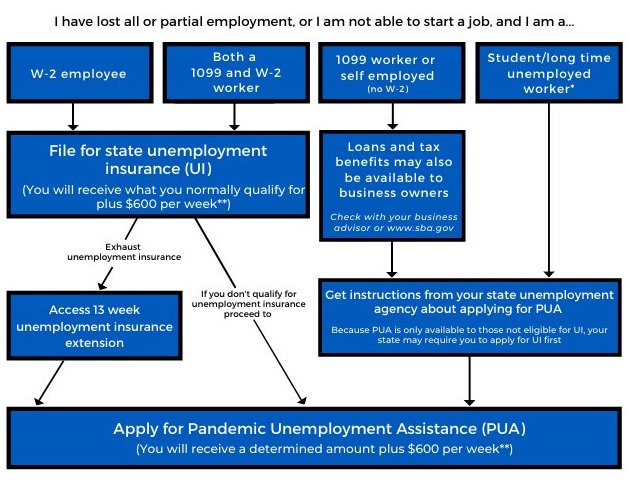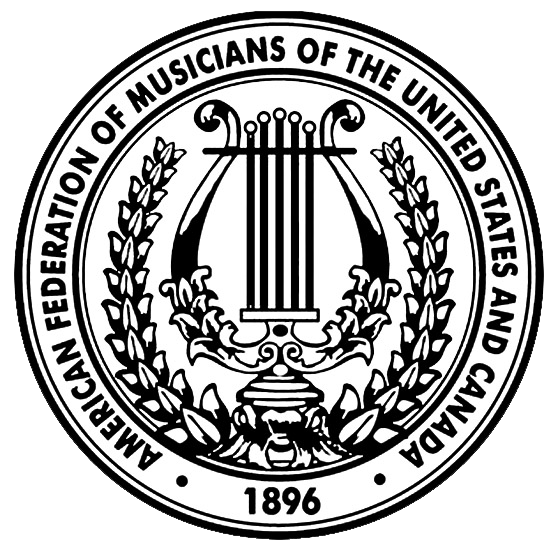COVID-19 Resources
{Information on this page may change. Please check back frequently.}
Emergency Assistance for Musicians
Returning to Work Safely:
Guidelines for Small Venues, Studios & Rehearsal Spaces
Guidelines for Theater and Pit Musicians
As of December 28, 2020, the new Coronavirus stimulus package was passed. The relief legislation includes:
– An additional $300 per week for all workers receiving unemployment benefits, through March 14, 2021. The bill also provides an extra benefit of $100 per week for certain workers who have both wage and self-employment income but whose base UI benefit calculation doesn’t take their self-employment into account.
– An additional round of Economic Impact Payments of $600 for individuals making up to $75,000 per year and $1,200 for couples making up to $150,000 per year, as well as a $600 payment for each child dependent. This means a family of four will receive $2,400 in direct payments.
– Extends the Pandemic Unemployment Assistance (PUA) program, with expanded coverage to the self-employed, gig workers, and others in nontraditional employment, and the Pandemic Emergency Unemployment Compensation (PEUC) program, which provides additional weeks of federally-funded unemployment benefits to individuals who exhaust their regular state benefits. The extension was critical in preventing as many as 14 million Americans from losing this economic lifeline at the end of the year. Additionally, the bill increases the maximum number of weeks an individual may claim benefits through regular state unemployment plus the PEUC program, or through the PUA program, to 50 weeks.
– $15 billion in dedicated funding for live venues, independent movie theaters, and cultural institutions (Save Our Stages Act).
AFM continues to work to ensure economic relief for members, including expanding unemployment benefits and protections against evictions, foreclosures, and utility shut-offs.
Doing everything possible to limit the spread of COVID-19 is vital, but we understand the disastrous financial impact this will have on many musicians and other working people.
Where To Find Help (U.S. Residents)
Where To Find Help (Canadian Residents)

As Coronavirus (COVID-19) continues to impact people around the world and confirmed cases grow throughout North America, health and safety are our top priority. Please stay current with national, state/provincial and local public health guidelines.
Visit the following links for more information:
- AFL-CIO COVID-19 Resources
- Center for Disease Control (CDC) Prevention and Treatment
- Center for Disease Control (CDC) Interim Guidance for Businesses and Employers
- Occupational Safety & Health Administration
- Public Health Agency of Canada’s COVID-19 Updates and Resources
- Public Health Departments in the United States
- World Health Organization
Get Help
Unemployment Information
Recent federal legislation gives jobless musicians and other working people larger unemployment benefits over a longer period of time—including those who rely on contract work, freelance jobs, and others who have traditionally been excluded from unemployment insurance. For the first time, 1099 workers are able to receive unemployment benefits!
You can claim unemployment benefits for an extended period of time (up to four months) and the typical one-week waiting period to start receiving benefits has been waived. Weekly unemployment benefit amounts are increased by $600 through the end of July.
Please Note: All benefits are administered through state unemployment agencies, but many states have not yet implemented these expanded benefits or updated their websites. This means there could be a delay before you may access benefits available for 1099 workers and freelancers. Please keep checking with your state unemployment agency for updates.
Step-by-Step Guide to Unemployment Resources Is Here.
Frequently Asked Questions About Unemployment Resources Are Here.
2020 Recovery Rebates
APRIL 2020: Besides unemployment benefits, musicians may be eligible to receive one-time cash benefit to households of $1,200 per adult ($2,400 per couple) and $500 per child. People earning $75,000 ($150,000 jointly) or less will receive the full amount. This phases-out for people earning more than $99,000 ($198,000 jointly) with no children. People with no federal tax liability will receive only $600. You do not apply for this benefit.
Which Unemployment Benefits Do You Apply For?

What Do You Need to File for Benefits?
Each state sets its own unemployment insurance benefits and eligibility guidelines, but you will usually need certain information including:
- Addresses and dates of all your former jobs for the last 18 months.
- Employer Registration number or Federal Employer Identification Number (FEIN) of your most recent employer (if you have one). FEIN is on W-2 forms.
- Social Security number.
- Driver’s license or state issued ID card number (if you have one).
Follow through the application process. If there is a question you can’t answer, do your best. Make sure you finish! Even if it’s imperfect, it at least gets you in the system and in line.
Where Do You File for Benefits?
- Federal funds will be distributed to state unemployment agencies, and all benefits are administered through your state.
- To receive unemployment insurance benefits, you need to generally file a claim in the state where you worked.
- If you worked in a state other than the one where you now live or if you worked in multiple states, the state unemployment insurance agency where you now live can provide information about how to file your claim with other states.
- Please Note: All benefits are administered through state unemployment agencies, but many states have not yet implemented these expanded benefits or updated their websites. This means there could be a delay before you may access benefits available for 1099 workers and freelancers. Please keep checking with your state unemployment agency for updates.
Musicians’ Relief Fund
The Musicians’ Relief Fund helps union musicians who work gig to gig and are confronting extraordinary financial challenges as a result of the COVID-19 pandemic. Please Note: We have more applications than we can currently fund. We are pausing applications at this time and will reopen the process as more funds become available. We will reach out directly to all musicians who have already submitted applications.
The Actors Fund
Musicians affected by COVID-19 should contact The Actors Fund for information on emergency financial assistance and other resources including affordable housing, health care and insurance counseling. Learn more about The Actor’s Fund here.
Union Plus
Musicians participating in certain Union Plus programs who have been impacted by COVID-19 may be eligible for additional assistance through the Union Plus Mortgage Assistance Program and Union Plus Hardship Help. Learn more about Union Plus programs here.
Petrillo Fund
AFM’s Lester Petrillo Memorial Fund for Disabled Musicians was established to assist members-in-good standing who become ill or disabled, and are unable to accept work. You may be eligible for assistance if you are diagnosed with Coronavirus (COVID-19). AFM members may learn about the Petrillo Fund here.
